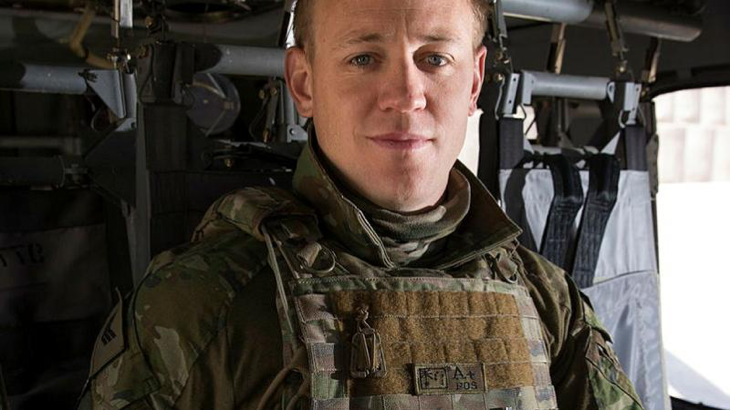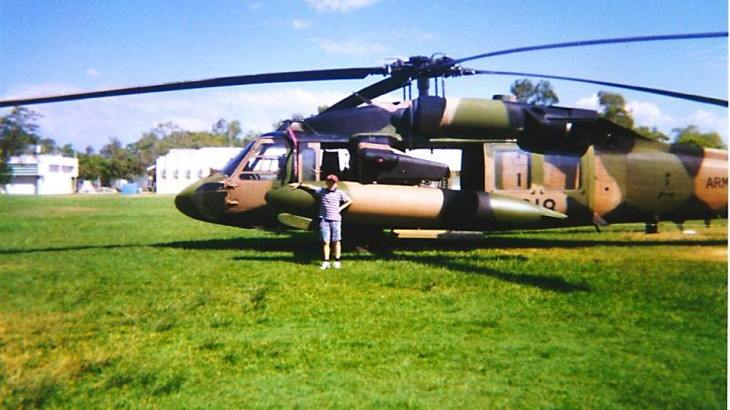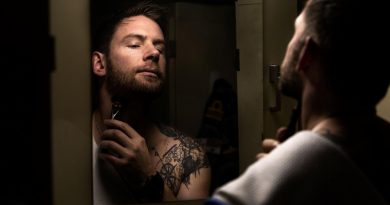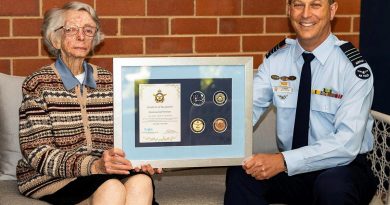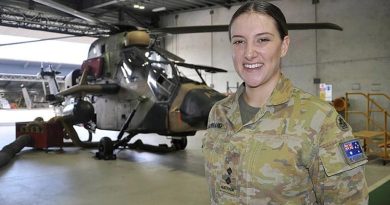From watching Black Hawk pilots to teaching them
Share the post "From watching Black Hawk pilots to teaching them"

Following the announcement Army will acquire UH-60M Black Hawks, Warrant Officer – Class 2 Max Bree spoke to three operators of the retired S70A-9 who, coincidentally, have all had an affinity with the aircraft since childhood. Among them was Warrant Officer – Class 2 Justin Cleggett.
CAPTION: Then Sergeant Justin Cleggett inside an Afghan National Army UH-60 Black Hawk in 2019. Story by Warrant Officer Class 2 Max Bree. Photo by Corporal Chris Beerens.
When Black Hawks soared over Larrakeyah Barracks in the 1990s, eight-year-old Justin Cleggett rode his bike to the base oval so he could watch them take off and land.
It was the start of a journey from refuelling Black Hawks as a ground crewman, to flying in them as an aircrewman.
Now, Warrant Officer – Class 2 Justin Cleggett is training aircrew instructors who will eventually be the first qualified on the modern UH-60Ms.
Warrant Officer – Class 2 Cleggett was an aircrewman for nine years on Army’s old S-70 Black Hawks, when he worked with special forces, flew ballot papers into the PNG highlands and helped respond to bushfires.
He also instructed Afghan aircrew in 2019 after they started operating the helicopters.
“No two days were the same. You could be giving assistance to the civilian community one day; the next it might be air-mobile troop insertions, to then training for hoist recoveries,” he said.
From the aircrewman’s positions in the old Black Hawk, Warrant Officer – Class 2 Cleggett would enjoy sweeping views around the aircraft.
“We had a 360-degree situational awareness between all the aircrew,” he said.
“From our crew stations we could see what was going on outside the aircraft and could defend the aircraft if needed, while inserting troops or doing other activities.”
Warrant Officer – Class 2 Cleggett was also impressed with the S70’s ability to quickly change cabin configurations between things like troop insertions, aeromedical evacuation or external load operations, even with the limited internal space.
While the older Black Hawks held M240 or MAG 58 machineguns, Warrant Officer – Class 2 Cleggett said the modern versions could be configured with M134 Miniguns or GAU-19 .50-calibre rotary machine guns.
“You’re expecting to come up against some form of resistance,” he said.
“So it’s good knowing you’re in a platform fitted with weapons systems to defend the aircraft, along with counter measures and ballistic protection.”
Warrant Officer – Class 2 Cleggett also liked how the old Black Hawks were agile enough to evade enemy fire but could still be flown after taking damage.
“It was built on redundancy, so it was pretty fail-safe,” he said.
“If someone shot out a heap of hydraulic systems on one side, you could still keep flying with backup systems.”
There was a buzz among former Black Hawk operators to receive the modern aircraft, according to Warrant Officer – Class 2 Cleggett.
“It’s an extremely capable platform. Compared to the S70, it has increased performance, survivability, and lethality,” he said.
CAPTION: Eight-year-old Justin Cleggett next to an Australian Army Black Hawk at Larrakeyah Barracks in the ’90s.
.
.

.
.
Share the post "From watching Black Hawk pilots to teaching them"

